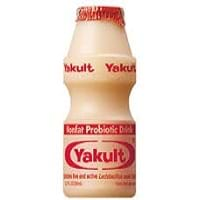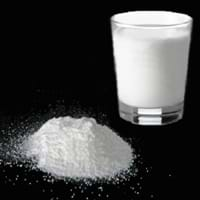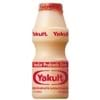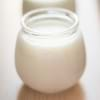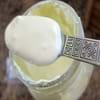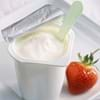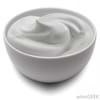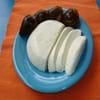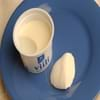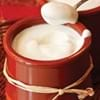Yakult vs Milk Powder
Calories
Calories in 1 pat
Not Available
434.00 Kcal
13
Calories per 100g
50.00 Kcal
99+
362.00 Kcal
27
Calories in 1 tbsp
Not Available
17.00 Kcal
5
Calories in 1 cup
Not Available
Not Available
Calories in 1 stick
Not Available
Not Available
Serving size
100
100
Proteins
0.80 g
99+
36.16 g
5
Carbs
12.00 g
31
51.98 g
6
Fiber
0.00 g
15
0.00 g
15
Sugar
11.00 g
99+
51.98 g
99+
Fats
0.10 g
1
0.77 g
5
Saturated Fat
0.00 g
0.50 g
4
Trans Fat
0.00 g
Not Available
Polyunsaturated Fat
0.00 g
99+
0.03 g
99+
Monounsaturated Fat
0.00 g
99+
0.20 g
99+
Nutrition
Serving Size
100
100
Cholesterol
0.00 mg
99+
20.00 mg
99+
Vitamins
Vitamin A
0.00 IU
99+
22.00 IU
99+
Vitamin B1 (Thiamin)
0.00 mg
99+
0.42 mg
3
Vitamin B2 (Riboflavin)
0.00 mg
99+
1.55 mg
2
Vitamin B3 (Niacin)
0.00 mg
99+
0.95 mg
8
Vitamin B6 (Pyridoxine)
0.00 mg
99+
0.36 mg
6
Vitamin B9 (Folic acid, Folate)
0.00 µg
99+
50.00 µg
7
Vitamin B12 (Cobalamin)
0.00 µg
99+
4.03 µg
1
Vitamin C (Ascorbic acid)
0.00 mg
29
6.80 mg
2
Vitamin D
0.00 IU
39
0.00 IU
39
Vitamin D (D2+D3)
0.00 µg
18
0.00 µg
18
Vitamin E (Alpha- Tocopherol)
0.00 mg
99+
0.00 mg
99+
Vitamin K (Phylloquinone)
0.00 µg
27
0.10 µg
26
Minerals
Calcium
17.00 mg
99+
1,257.00 mg
3
Iron
0.00 mg
99+
0.32 mg
35
Magnesium
2.00 mg
99+
110.00 mg
7
Phosphorus
12.00 mg
99+
968.00 mg
3
Potassium
32.00 mg
99+
1,794.00 mg
1
Sodium
15.00 mg
99+
535.00 mg
27
Zinc
0.00 mg
99+
4.08 mg
5
Other
Water
85.40 g
3.16 g
Caffeine
0.00 g
0.00 g
Benefits
Health Benefits
Aids in gut easing, gastrointestinal problems and digestion, Avoids constipation, Cures acidity, Lactose Intolerants, Prevents gastrointestinal diseases like IBS and IBD, Boosts immune system, Improves digestion, Prevents Cancer, Strengthens the immune system
Aids absorption of nutrients, Beneficial for reproductive system, Enhances calcium absorption, Enhances growth in children, Favorable for infants, Strong & healthy muscles, Absorps of Calcium & Vitamin B, Lowers the risk of gallstones, Presence of calcium, Presence of calcium makes teeth strong & healthy, Reduces nutrient deficiency, Reduces vitamin inadequancy
Other General Benefits
Boosts immune system, Improves digestion
Good for bones, Good for eyesight, Good for immune system, Presence of calcium makes teeth strong & healthy, Protects arteries, Prevents Cancer
Hair and Beauty Benefits
Skin Care
Exfoliates dead skin from body, Gives glowing and flawless skin, Stabilize skin sebum
Not Available
Hair Care
Not Available
Not Available
Nutritional Importance & Uses
Uses
It can be added to cereals, smoothies, milkshakes, cheesecakes, and other cold foods, It is a probiotic superdrink, Use it as base for smoothies, Used in cosmetics
Fat free powdered milk is used as a saturating agent in Biotechnological processes, It has many culinary uses in both sweet and salty dishes., It is a common item in places where fresh milk is not a viable option, like fallout shelters., It is sometimes used in film-making as a nontoxic prop., It is used in the recipes where adding milk would make the product thin, like baked goods., No uses found
Nutritional Importance
Low fat, Rich in probiotics
Good source of Calcium, Good source of protein, Rich in Vitamin A, Rich in Vitamin D
Allergy
Yakult and Milk Powder Allergy Symptoms
Diarrhea
Abdominal bloating, Abdominal cramps, Abdominal pain, Anaphylaxis, Constipation, Flatulence or gas, Headache, Loose stool containing blood or mucus, Not Available, Oral swelling, Rashes in the form of hives, Skin inflammation, Sneezing, Tightening of throat, Vomiting
What is
What is
Yakult is a probiotic dairy product made by fermenting a mixture of skimmed milk with a special strain of the bacterium Lactobacillus casei Shirota.
Powdered milk or dried milk is a dairy product made by evaporating milk to dryness. The purpose being to extend shelf life.
Color
Not Available
White
Yakult and Milk Powder Flavor
Refreshing, Sweet, Tangy
Milky
Yakult and Milk Powder Aroma
Milky
Milky
Vegetarian
Yes
Yes
Origin
Japan
Russia
How to make
Serving Size
100
100
Ingredients
Live Lactobacillus caseis, Skimmed milk, Sugar, Water
Pasteurized Milk
Fermentation Agent
Not Applicable
Not Applicable
Things you need
2 Bowls, Not Applicable
Not Applicable
Time Duration
Preparation Time
6-7 days fermentation
Not Available
Cooking Time
NA
Not Available
Aging time
Not Available
Not Applicable
Storage & Shelf Life
Refrigeration Temperature
37.40 °F
20
40.00 °F
18
Shelf Life
1 Month
2 years
